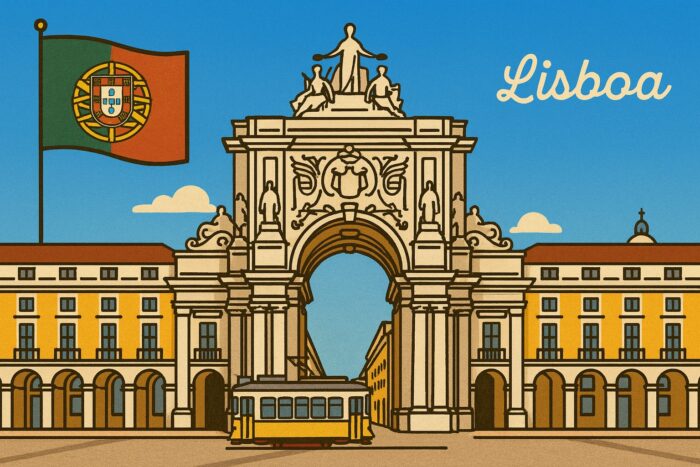Lisbon likes to sell itself as modern, vibrant, cosmopolitan. The reality is different. Lisbon is a heavy, backward city, full of small-minded people — crushed by generations of mental poverty, social fear, and a chronic envy that corrodes any possibility of greatness. Outsiders feel the weight in the air: distrust, jealousy, fear, judgment. The prevailing mindset is not about growth — it’s about mediocre survival.
The typical Portuguese lives in an invisible prison he feeds every day. He rarely smiles, trusts even less, has fun poorly and with guilt. In bars and clubs, the lack of naturalness is glaring. Dance? Only if others dance first. Approach strangers? Only after calculating the risk of rejection twenty times. Even in leisure, the Portuguese is tied down by shame, envy, and fear of what others will think. He doesn’t live. He pretends to live.
Anyone who’s spent time in cities like Berlin, Amsterdam, or Prague understands even more the tragedy that is Lisbon. There, people live for real — open, expressive, unafraid of making mistakes. The contrast is humiliating. While the northern European laughs, dances, creates, and takes risks, the Portuguese analyzes, hesitates, compares, and chokes on his own social poison. Lisbon is modern only in the photos. In spirit, it’s medieval.
It’s easy to tell who is Portuguese and who is foreign. Just look at the body language. The Portuguese closes off, avoids eye contact, observes with suspicion, weighs every word before speaking. The foreigner, even from supposedly poorer countries, breathes freedom — walks lightly, speaks without fear, laughs naturally, looks you in the eye. The difference is grotesque to those who are awake.
Lisbon is a city where most people don’t aim to be better — they aim to make sure no one around them becomes too great. There’s an underground culture of dragging everyone down: those who shine are cut down, those who try to stand out are pulled into the mud with stares, comments, and passive-aggressive behavior. The average Portuguese doesn’t dream of being free. He dreams that his neighbor fails, so he won’t feel inferior.
This brutal stagnation has deep roots: centuries of mental and social dictatorship, submission to power, economic poverty, and cultural numbness. There’s no healthy pride — only inferiority complex masked by empty arrogance. No real ambition — just cheap careerism and a hunger for external validation. Lisbon doesn’t breathe innovation — it breathes imitation. It copies what comes from outside without ever understanding the essence.
Those with a big soul suffocate in Lisbon. Because it’s not a place for dreamers or for those hungry for real life. Lisbon is the place for those who settle for surviving quietly, in fear, hiding behind empty façades of social success.
And no, brunches, rooftops, startups, and trendy festivals don’t fix that. The mentality is still rotten inside. The average Portuguese is still a slave to what others think. Still unable to live for himself. Still measuring life by the envy of others and the fear of exposure.
Until this mentality dies, Lisbon will remain what it is: a beautiful city to impress tourists — but a disguised prison for anyone with vision and courage to see beyond appearances.
May 2025
This article is in English. Read the Portuguese version ⇒ Ler em português
